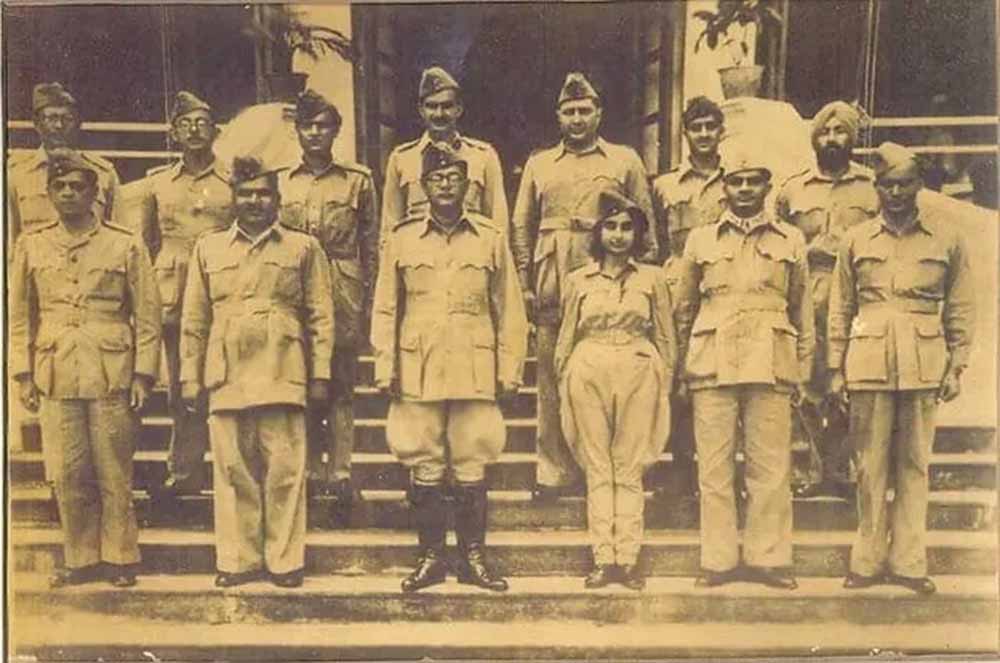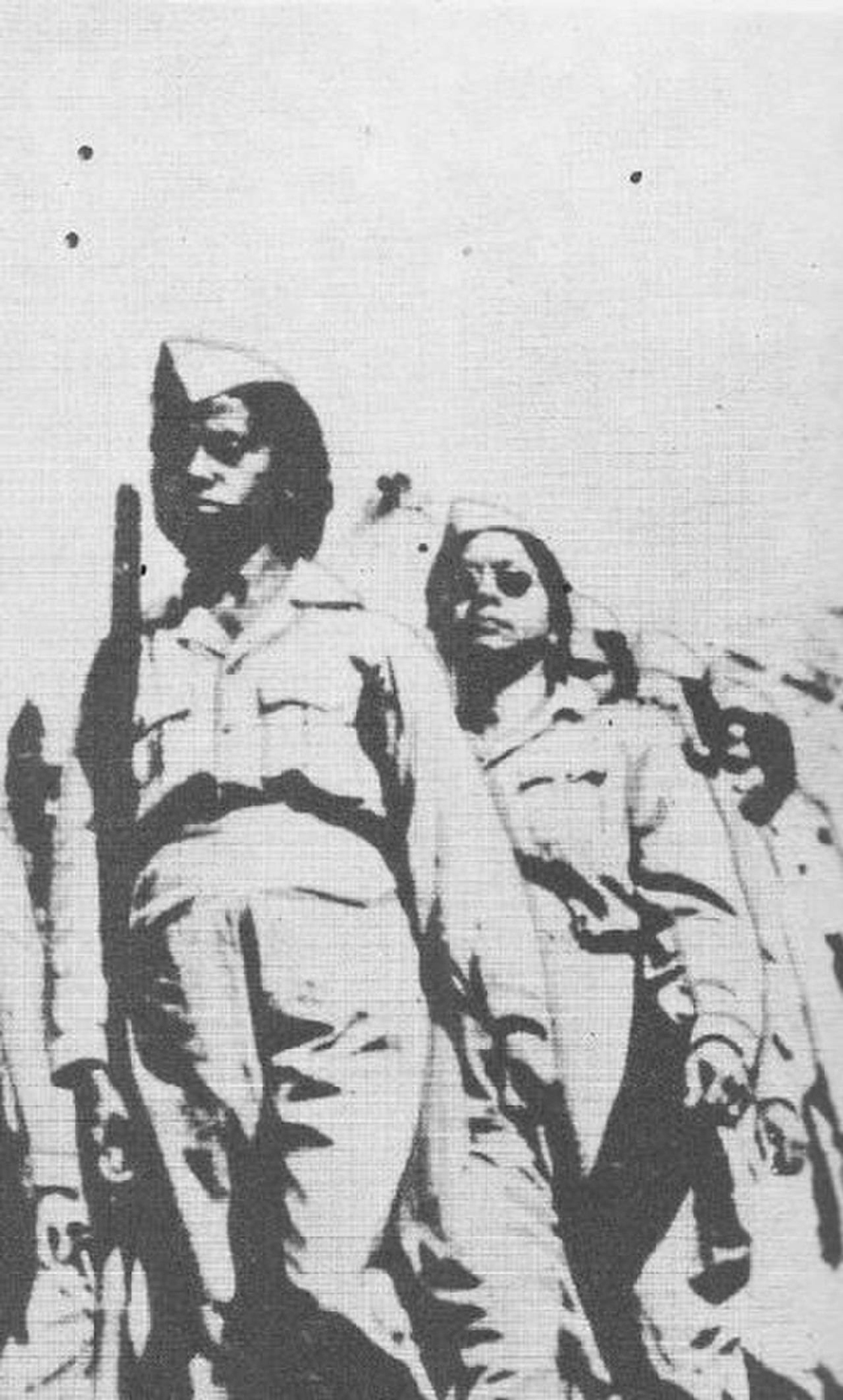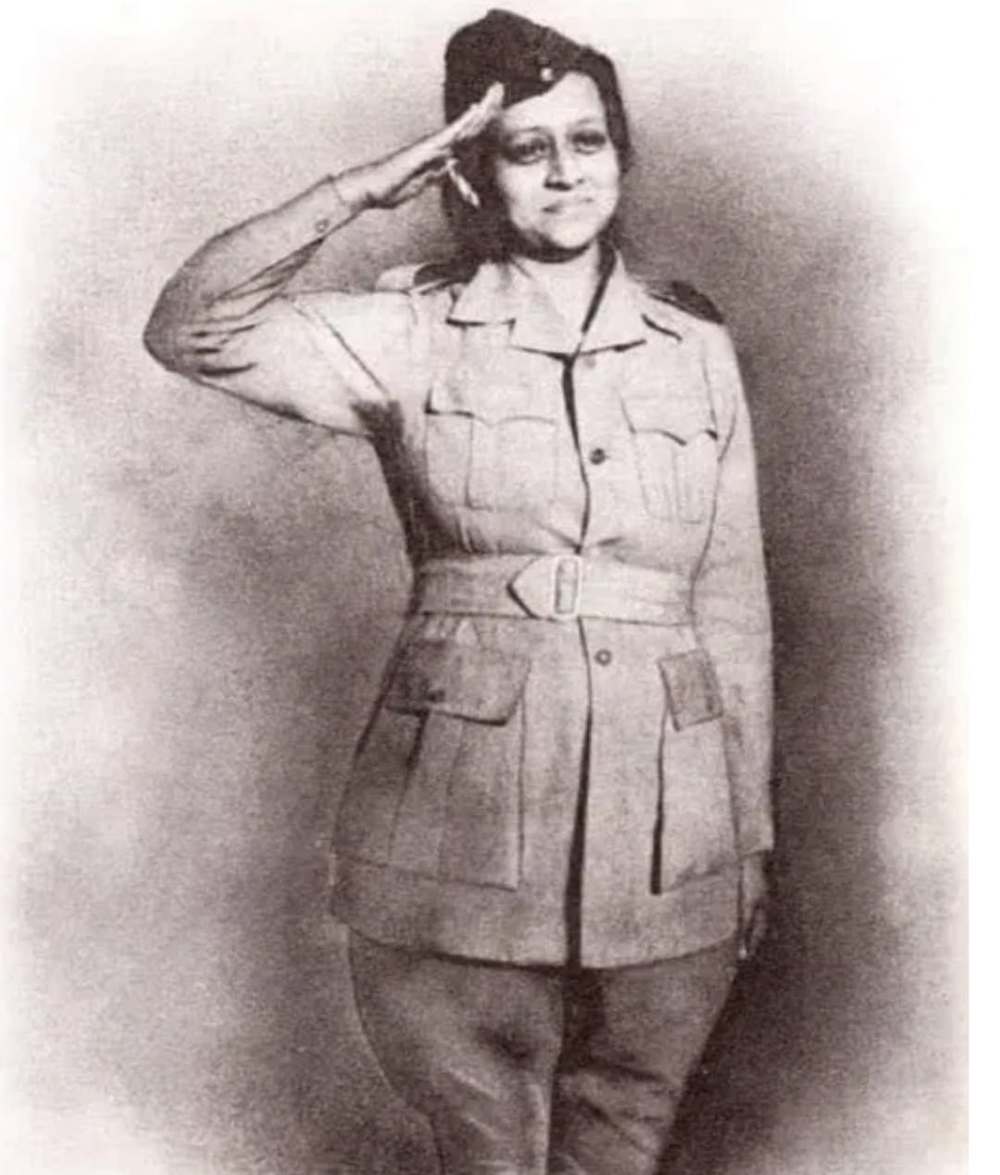Saraswathi Rajamani, often hailed as one of India’s youngest spies, was an unlikely hero of the Indian freedom struggle. Her story, marked by courage, resourcefulness, and a deep commitment to India’s independence, defies the traditional image of a freedom fighter. She ventured into the world of espionage at just 16, making her one of the youngest and most daring spies fighting against British colonial rule.

Early Life and the Seeds of Patriotism
Born in 1927 in Rangoon (now Yangon), Burma, to a Tamil family with strong nationalist ties, Saraswathi grew up imbued with the values of patriotism and resilience. Her father, a wealthy businessman, was a supporter of India’s freedom movement and often funded nationalist causes. Inspired by her father’s passion, Saraswathi developed an intense desire to play her part in India’s liberation from British rule.
When Netaji Subhas Chandra Bose visited Burma to rally support for the Indian National Army (INA), young Saraswathi was profoundly inspired. She was determined to be part of the struggle and immediately volunteered to join the INA’s secret operations. With her sharp intellect and fearlessness, she quickly caught the attention of Bose, who recognised her potential as a covert operative.
A Teenage Spy in the Ranks of the INA
Despite her age, Saraswathi was entrusted with tasks that demanded maturity and quick thinking. Posing as a civilian, she gathered intelligence, delivered messages, and passed crucial information to INA soldiers fighting the British forces. Her youthful appearance proved to be an asset, as British soldiers rarely suspected a young girl of espionage activities.
One of her most daring missions involved rescuing a fellow INA spy. When her colleague was captured by the British and held in Rangoon, Saraswathi disguised herself as a dancer and infiltrated the facility where he was imprisoned. Through meticulous planning, she managed to free him, an act that showcased her bravery and commitment to the cause. This rescue mission brought her great admiration within the INA ranks.

Life Undercover: Danger and Sacrifice
Life as a spy was far from easy for Saraswathi. She lived a double life, constantly under the risk of exposure and capture. Despite her family’s affluence, she often faced challenging conditions. Her missions required her to blend in with locals, endure harsh environments, and keep her identity secret even from those closest to her. Her work demanded not only physical courage but also mental resilience.
Saraswathi was aware that being caught could mean imprisonment or even death, but she continued her work undeterred. Her family eventually learned of her involvement in the INA, and while they were concerned for her safety, they respected her commitment to India’s independence.

Legacy and Recognition
After India gained independence in 1947, Saraswathi’s contributions, like those of many other women in the freedom movement, remained largely uncelebrated. The secretive nature of her work meant that her achievements were not widely known. However, her dedication and bravery laid the groundwork for acknowledging the role women played in India’s struggle for freedom.
In her later years, Saraswathi Rajamani lived a quiet life. Although she faced health and financial challenges, her spirit remained unbroken. She was eventually recognised for her role in the INA, and her story began to gain attention as historians and journalists uncovered accounts of women who had contributed to India’s independence.